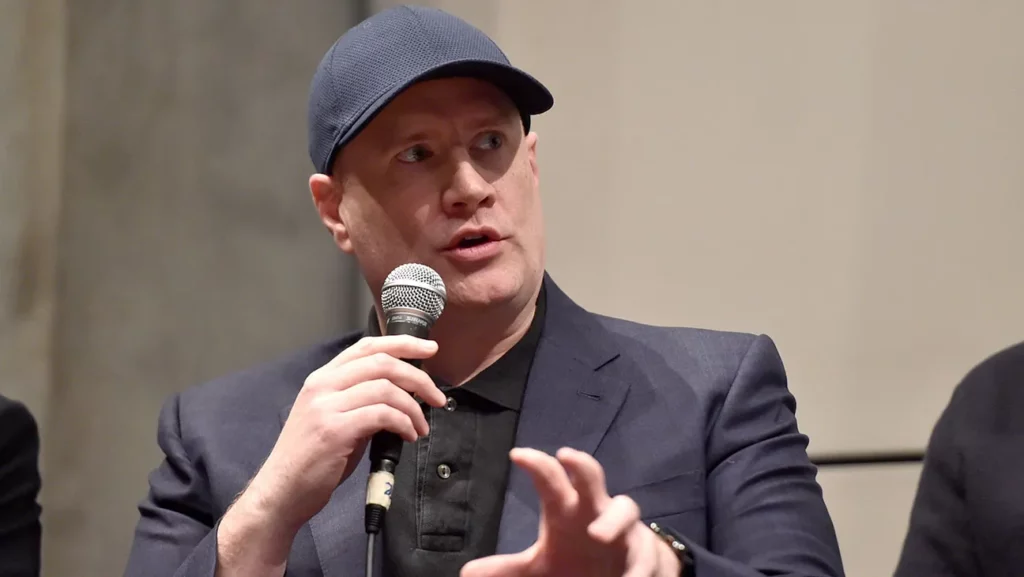In the climactic finale of Avengers: Endgame, audiences bid farewell to two iconic Avengers, Iron Man and Black Widow. Their sacrifices closed a chapter for the original team, yet allowed for future stories to unfold within the Marvel Cinematic Universe. However, it has recently been revealed that Kevin Feige, the mastermind behind the MCU, initially proposed an even more drastic ending: the death of every original Avenger.
In a surprising interview on the Happy Sad Confused podcast, directors Anthony and Joe Russo shared that Feige’s original pitch wasn’t limited to Iron Man and Black Widow. Instead, he envisioned a truly shocking conclusion that would have seen Captain America, Thor, Hawkeye, and even the Hulk meeting their end alongside Tony Stark and Natasha Romanoff.
“Kevin did actually pitch, at one point, taking all the OGs off the board,” Joe Russo explained. “We thought it was way too aggressive and that the audience wouldn’t be able to process it.”
Why the Russo Brothers Said No to Feige’s “Avengers Bloodbath”
The Russo brothers, who had already guided fans through the emotional rollercoaster of Captain America: Civil War and Avengers: Infinity War, knew the weight of a single loss was often more potent than a massacre. Killing all the original Avengers would not only break hearts but would also, they feared, overwhelm the audience to a point where any sense of catharsis would be lost.
Joe Russo elaborated on the importance of emotional pacing, saying:
“Picking one or two characters to make sacrifices throughout the movie might give you moments throughout the film where the action could stop, and you could have emotional catharsis and then continue with the narrative.”
By retaining just two impactful losses, the Russo brothers provided the audience time to process the gravity of Iron Man’s final snap and Black Widow’s selfless dive, allowing fans to reflect on the journey each character had taken without feeling emotionally exhausted.
Jon Favreau’s Desperate Plea to Save Tony Stark
While the Russo brothers managed to talk Feige down from his apocalyptic pitch, the decision to kill even Iron Man was far from unanimous. Marvel director Jon Favreau, who launched the MCU with Iron Man in 2008, was vocal in his concerns about losing the character who started it all. As Anthony Russo recounted in an interview with Vanity Fair:
“Part of the pressure [not to kill Tony Stark] came from Jon Favreau, who called us up after he read the script … and said to us, ‘Are you really going to kill Iron Man?’”
Joe Russo added, remembering a tense conversation with Favreau:
“I remember pacing on the corner of a stage on the phone with Favreau trying to talk him off a ledge. Because he’s like, ‘You can’t do this. It’s gonna devastate people, and you don’t want them, you know, walking out of the theater and into traffic.’”
Despite Favreau’s plea, the Russos pressed forward, feeling that Stark’s ultimate sacrifice was essential to close his story arc. Yet even with his death, the impact was cushioned by the presence of other original Avengers who survived.
How Endgame’s Choices Saved the MCU from Going “Too Dark”
The decision to save some of the original Avengers allowed for a more balanced farewell to the franchise’s founding heroes. Rather than an abrupt and total loss, fans could cherish Captain America’s quiet departure and Hulk’s quiet persistence. Moreover, this approach kept the door open for future stories—an opportunity Feige seized as Phase Four and beyond introduced fresh heroes and villains.
Had Feige’s original idea come to life, the MCU might have struggled to recover from the bleakness. As it stands, the departures of Iron Man and Black Widow already left a noticeable void, and Marvel has grappled with finding new team dynamics that rival the chemistry between the original six Avengers.
The Aftermath: Has the MCU Struggled Since Losing Its “Founding Six”?
Without Iron Man and Black Widow, and with Captain America passing on his shield, the MCU has encountered some bumps in the road. The once-unbreakable synergy among the original six Avengers—Iron Man, Black Widow, Captain America, Thor, Hulk, and Hawkeye—is challenging to replicate. New heroes have joined the fray, but few have managed to inspire the same fervor as their predecessors.
After Endgame, the MCU has seen mixed success at the box office. With notable exceptions like Spider-Man: No Way Home, films have struggled to capture the same level of mass appeal. Even collaborations that work nostalgically, such as Deadpool’s upcoming return with Wolverine, hint at a reliance on past icons to sustain interest.
This challenge would have been amplified tenfold had Feige’s drastic plan unfolded, effectively erasing the legacy of Marvel’s most cherished characters in a single, unforgettable blow.
Could the MCU Find Its Footing If All the Original Avengers Had Fallen?
Marvel has consistently relied on the blend of continuity and evolution, drawing on beloved characters to anchor its expanding universe. Without the balance struck in Endgame, the MCU might have ventured too far into despair, losing fans who felt emotionally detached from an overly grim finale. The Russo brothers’ foresight preserved the connection fans felt with Marvel, giving the MCU a softer landing and enabling it to explore new narratives without the shadow of all six fallen heroes.
The cinematic universe Marvel built, woven with familiar faces and emotional connections, has survived because of this delicate equilibrium. Feige’s radical pitch would have rewritten the rules—but, as the Russo brothers recognized, some doors are best left ajar.
